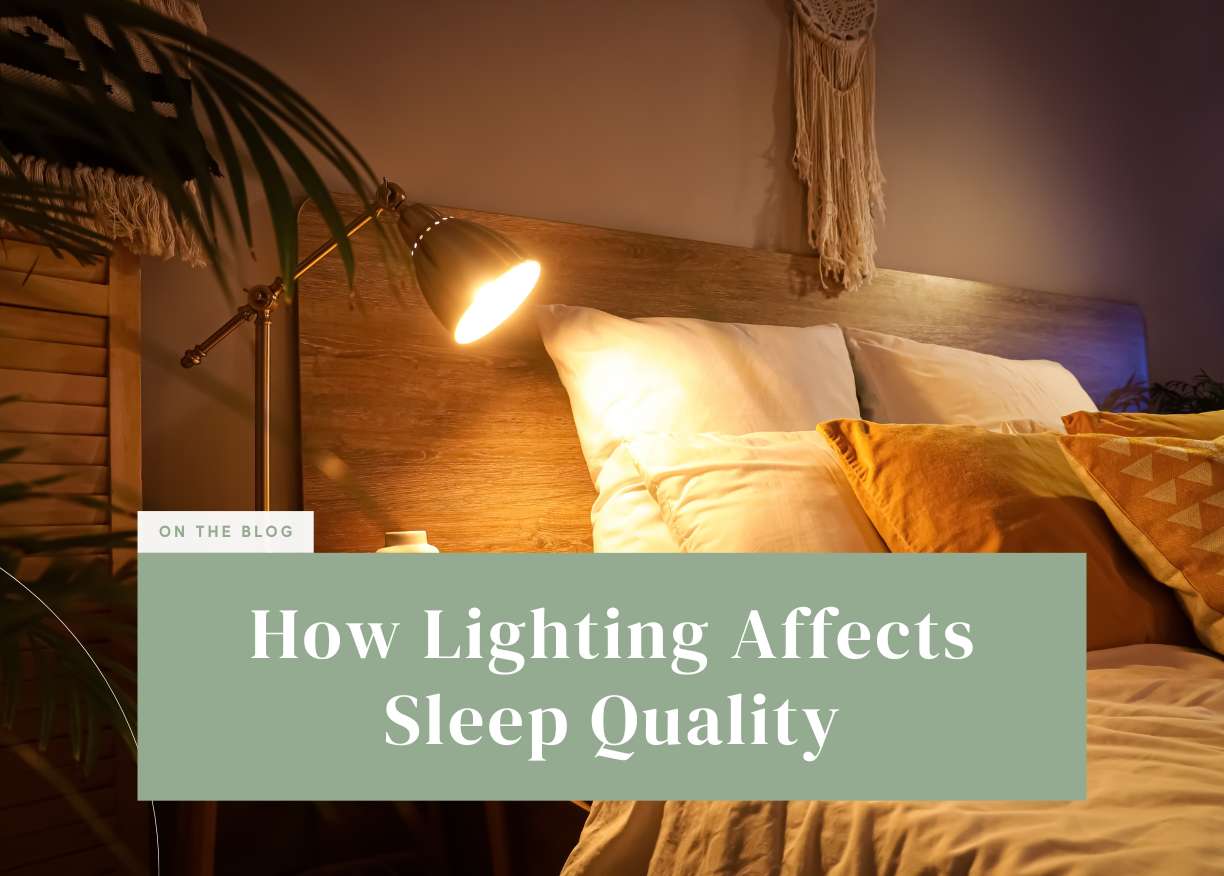How Lighting Affects Sleep Quality
You might not think much about your lights after sunset—but your body does.
From the brightness of your phone screen to the color of your bedroom lamp, light tells your brain when to stay awake and when to rest. Get it wrong, and even a comfortable bed can’t fix it.

Light Is Your Body’s Sleep Switch
Your brain follows a rhythm called the circadian cycle—a 24-hour pattern guided mainly by light.
When light hits your eyes, it suppresses melatonin, the hormone that signals sleep.
When light fades, melatonin rises, and your body starts winding down.

Artificial light—especially blue light from screens—confuses that system, keeping your brain in “day mode” long after the sun goes down.
How Light Affects Sleep Quality
Too much light at night means:
-
Delayed melatonin release (you fall asleep later)
-
Shorter deep-sleep stages
-
Grogginess the next morning, even after “enough” hours in bed

On the other hand, morning light exposure does the opposite—it helps your body reset, improving alertness and mood throughout the day.
Lighting Tips for Better Rest
-
Dim lights two hours before bed.
-
Avoid screens or use blue-light filters at night.
-
Use warmer bulbs (around 2700K) in bedrooms.
-
Expose yourself to sunlight soon after waking—your body clock resets faster.
-
Use blackout curtains if streetlights or early sun interfere with rest.

The Role of Your Sleep Setup
Once the lights go down, your environment finishes the job:

🌿 Honey Hybrid Organic Mattress: Keeps your body supported for still, restorative sleep through all cycles.
🌿 Bamboo Sheets: Soft and temperature-regulating, perfect for keeping calm as melatonin rises.
🌿 Adjustable Base: Helps with reading or unwinding before bed—then reclines to your ideal sleeping angle when it’s time to switch off.
Together, they complete the transition from light to dark, wakefulness to rest.
Final Thoughts
Lighting isn’t just décor—it’s biology. The more you align it with your body’s natural rhythm, the easier sleep becomes.
So tonight, think less about how to fall asleep—and more about how to let your body realize it’s time.




